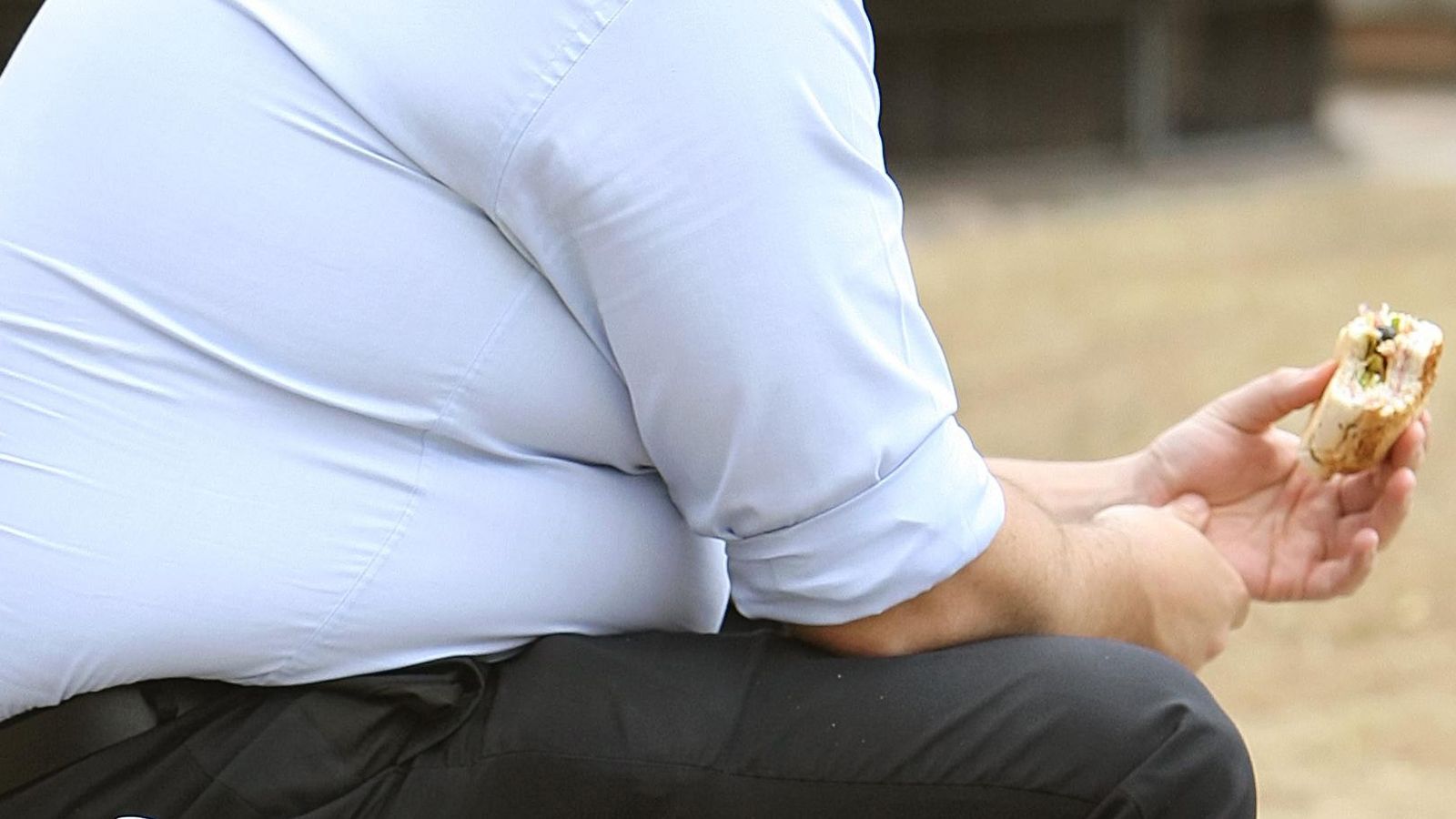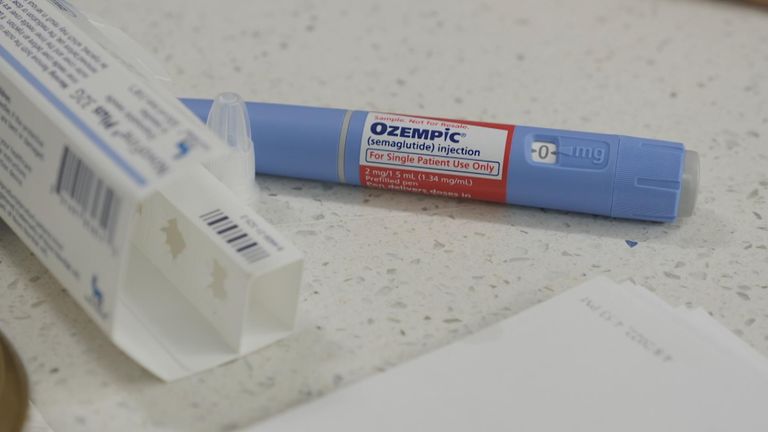
A two-year pilot scheme is being launched to increase access to weight loss drugs and cut NHS waiting lists – as Rishi Sunak said the new treatments could be a “game-changer”.
Ministers hope the £40m programme using drugs like semaglutide – also known as Wegovy – will help crack down on obesity, reduce pressure on the health service and save money in the long term.
Semaglutide “suppresses appetite by mimicking the hormone glucagon-like peptide-1 (GLP-1), which is released after eating”, according to the National Institute for Health and Care Excellence (NICE).
This makes people feel full, reducing the amount of food they consume.
It was announced earlier this year that it would be available on the NHS.
NICE advised that semaglutide should only be available through specialist clinics, which tend to be based in hospitals.
Ministers want to use some of the £40m to research whether these weight management services could rather be provided through GPs, in the community or digitally in order to reach more people.
It is administered through weekly injection, and the government says it “can help adults living with obesity lose over 15% of their body weight when prescribed alongside diet, physical activity and behavioural support”.
The prime minister said: “Obesity puts huge pressure on the NHS.
“Using the latest drugs to support people to lose weight will be a game-changer by helping to tackle dangerous obesity-related health conditions such as high blood pressure, diabetes and cancer – reducing pressure on hospitals, supporting people to live healthier and longer lives, and helping to deliver on my priority to cut NHS waiting lists.”
Read more:
The weight loss injections taking TikTok by storm
Next wave of weight loss jabs could be coming – without the nausea
According to the government, obesity-related conditions cost the NHS £6.5bn a year, and in the 2019/2020 period, there were more than a million NHS hospital admissions where obesity was a factor.
Boots has already indicated plans to provide the jab from its pharmacies, and private clinics are also advertising appointments to help people get the drugs once they become available.
NICE also recommended that semaglutide be used for people with a body mass index of at least 35 (roughly 18 and a half stone at 6ft tall) who also have a weight-related condition like diabetes or high blood pressure.
The drug has previously been approved in America, and celebrities like Elon Musk have spoken about using it.
Nausea, vomiting and diarrhoea are among the side effects of semalglutide, and there is also an increased risk of gallstones, kidney failure, pancreatitis and thyroid cancer.
There have previously been warnings that Novo Nordisk, the company that makes the Wegovy jab, may not be able to meet the demands of increased NHS prescriptions.
In smaller doses, semaglutide is used to treat diabetes – and doctors were worried that some people might lose out due to supply chain disruption.
NHS medical director Professor Sir Stephen Powis said: “Pharmaceutical treatments offer a new way of helping people with obesity gain a healthier weight and this new pilot will help determine if these medicines can be used safely and effectively in non-hospital settings as well as a range of other interventions we have in place.”













